An old, worn toothbrush is a hazard to your teeth and gums and a breeding ground for germs and bacteria — replace it every three to four months at least
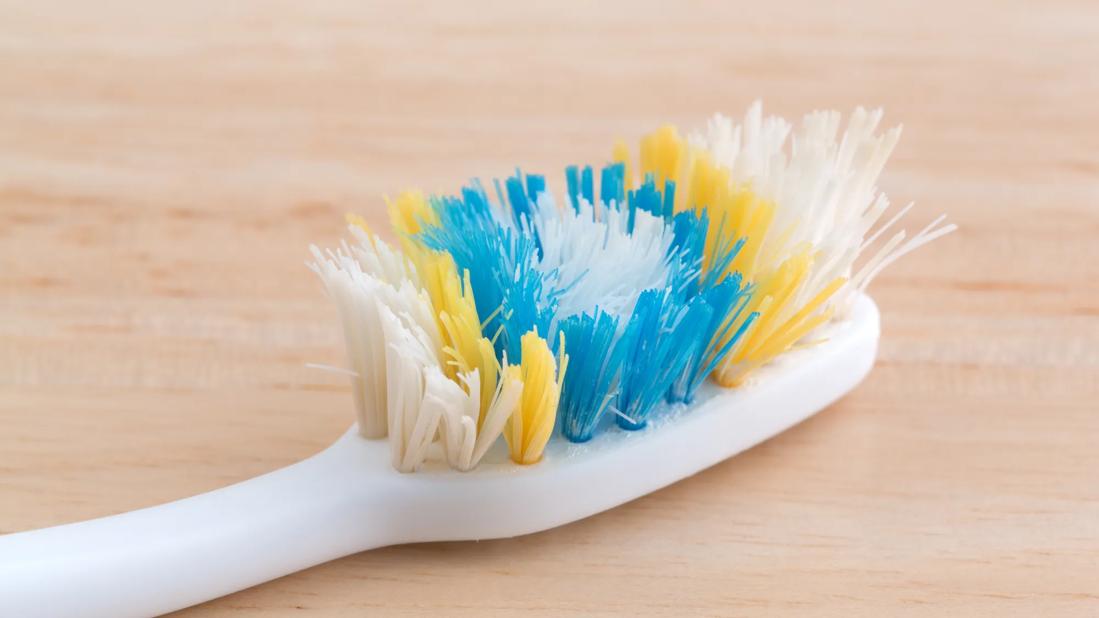
We all know the basics of how and when to brush our teeth. But if you’re not changing your toothbrush on the regular, all that effort to keep your pearly whites in tip-top shape may not be getting you the results you’re hoping for. Letting an old toothbrush linger around can even do serious damage.
Advertisement
Cleveland Clinic is a non-profit academic medical center. Advertising on our site helps support our mission. We do not endorse non-Cleveland Clinic products or services. Policy
Dentist Sonoko Nakasato, DMD, shares advice for keeping your toothbrush working for you.
The American Dental Association is clear in its recommendations: Change your toothbrush every three to four months, minimum.
That may coincide with the colored bristles turning white. And it may not. So, rather than paying attention to the color of your brush, keep an eye on the calendar.
There are situations, too, when you’ll want to change it up before that three-month timer runs out. Switch out your toothbrush if:
A fresh toothbrush is a safe and effective toothbrush. One that’s been used day in and day out for months on end is more likely to be a home for bacteria. What’s more, that daily wear and tear takes a toll, making your toothbrush less effective at cleaning away plaque over time.
Dr. Nakasato elaborates.
Sure, you probably rinse your toothbrush after each use. Maybe you even run your fingers over the bristles to clear out old toothpaste and gunk. But the ol’ rinse-and-go method doesn’t kill the germs that can hide in your toothbrush.
Advertisement
“Your mouth is full of bacteria. Some are good, some are bad. And those bacteria can cling to our toothbrushes,” Dr. Nakasato points out. “You need to replace it often so you’re not growing a community of bacteria on your toothbrush.”
That’s also why it’s recommended to change your toothbrush after being sick with illnesses like the flu or strep throat. Germs are tough little things. They can continue to live and thrive on your toothbrush, even after you recover. That means you could be reinfected by the viruses and bacteria that have been hanging out on your brush.
Brushing your teeth is an important habit. But over time, those thousands of back-and-forth swipes add up to some serious wear on your toothbrush. And a toothbrush that’s seen better days can’t do its job as well.
For starters, bristles that aren’t standing at attention don’t scoop away plaque and bacteria as well. That can keep your teeth from being less-than-pearly white. And it can lead to things like cavities and gingivitis.
What’s more, damaged bristles can hurt your teeth and your gums.
“Bristles that are frayed can mean doing more abrasive movements,” Dr. Nakasato warns. “So, you can start to brush away your enamel, which is the outer layer of your teeth. You can even start to brush away bits of your gums, which can lead to gum recession, where your gums pull away from your teeth.”
Replacing electric toothbrush heads can get expensive, so you may be tempted to stretch out their shelf life a little longer than that three-to-four-month mark.
Not a good idea. Electric toothbrushes aren’t immune to the germs and damage that plague any other toothbrush.
“Electric toothbrushes are great at getting the plaque and buildup off your teeth. But they need to be switched out just as often as a manual toothbrush,” Dr. Nakasato advises.
That's because even though your electric toothbrush is doing a lot of the work for you — with its rotating bristles and buzzing action — it’s still wearing at the same rate as the manual variety. And it, too, can harbor germs from your mouth and the environment.
If your toothbrush isn’t making it three months without needing an upgrade, there are steps you can take to make it last better.
And if you have trouble remembering when to change it? Mark it on your calendar, set a reminder on your phone or write the date on your toothbrush with a permanent marker. There are also subscription services that will mail you a new toothbrush or a replacement head for your electric toothbrush every three months. When it arrives, you know it’s time to make the swap.
Advertisement
Keep up the good brushing!
Advertisement
Learn more about our editorial process.
Advertisement

You might have a sensitive gag reflex — but gagging while brushing can also be a result of certain medical conditions

Done correctly, daily flossing can help keep your teeth and gums healthy

Bloody gums after flossing usually signal a buildup of plaque, tartar and bacteria

A variety of products can be effective at removing stains on teeth
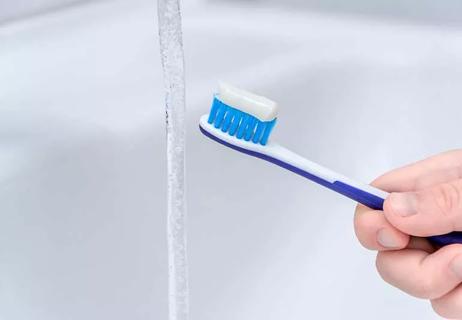
Despite unfounded theories, fluoride has the power to make your teeth stronger
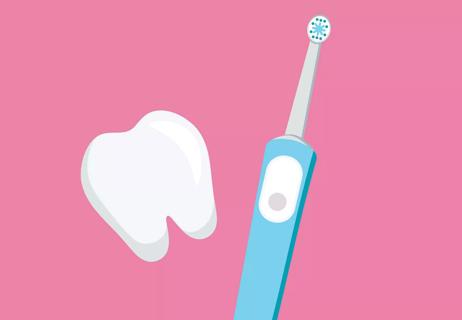
Studies show they do a better job than manual brushes at removing plaque and debris
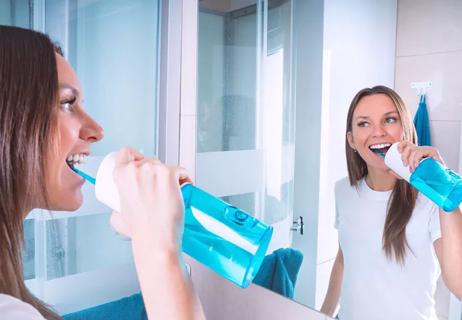
This tool is an add-on to your regular brushing and flossing habits, not a replacement for them
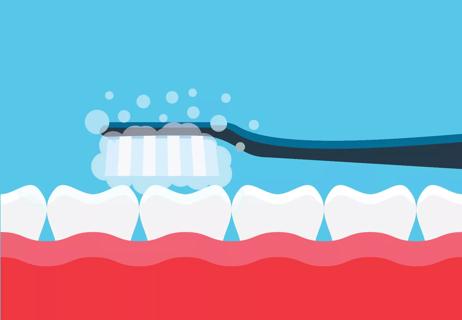
Brushing for two minutes, twice a day is your baseline for dental health

Wearing a scarf, adjusting your outdoor activities and following your asthma treatment plan can help limit breathing problems

Your diet in the weeks, days and hours ahead of your race can power you to the finish line

When someone guilt trips you, they’re using emotionally manipulative behavior to try to get you to act a certain way